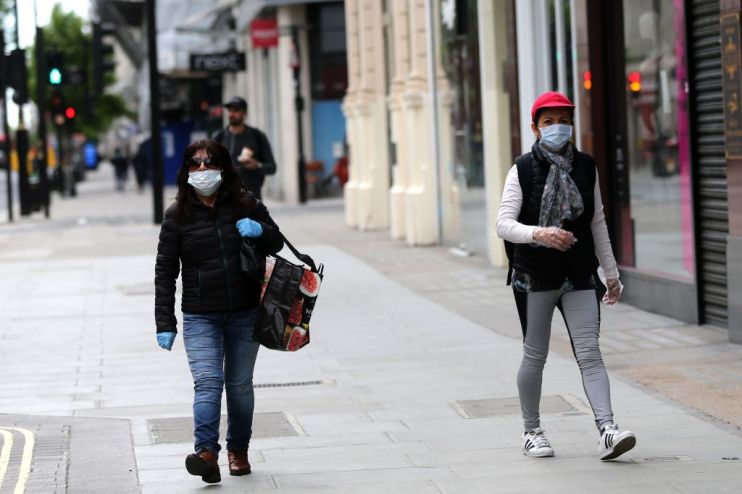UK retail sales crash a record 18.1 per cent in April lockdown

UK retail sales plunged by a record 18.1 per cent during April’s lockdown, data showed today, with clothing sales halving compared to March.
Sales of clothes crashed 50.2 per cent compared to March, while retail sales fell almost four times as badly as March’s 5.2 per cent fall, Office for National Statistics (ONS) data found.
Online sales rocketed to a record high proportion of 30.7 per cent in April as some stores shifted trading to digital-only. But overall the three-monthly growth rate in UK retail sales slumped 8.6 per cent. Every sector save food and online shopping slumped.
Currently all non-essential shops except for supermarkets and pharmacies are closed until at least 1 June during lockdown.
Restaurants, pubs, cafes and gyms are not set to reopen until July at the earliest, as the government tries to prevent a second wave of coronavirus infections.
Experts today warned retailers will continue to suffer until restrictions lift, however.
Lockdown produces huge hit on UK retail sales
“The retail picture will remain particularly difficult until the government starts allowing non-essential retailers to open as part of the easing of the lockdown,” Howard Archer, chief economic adviser to the EY Item Club, said.
“Meanwhile, the near-term fundamentals for consumer spending have clearly taken a very substantial downturn as a result of coronavirus. Many people have already lost their jobs despite the supportive government measures. Others will be worried that they may still end up losing their job once the furlough scheme ends.”
“Retail sales plummeted at a devastating pace as the impact of the lockdown paralysed the industry,” Richard Lim, chief executive of research firm Retail Economics, added.
“Clothing retailers were the hardest-hit as the absence of social interaction, whether that’s going to work, seeing friends or heading off on holiday, decimated demand for new outfits.
“Consumers shifted their spending online by records amounts, benefiting those retailers with the slickest e-commerce operations and who managed to cope with the shift in demand. Online grocery retailers were one of the major beneficiaries as they worked at an incredible pace to boost capacity.”
Consumers will continue to be cautious shoppers
EY’s Archer said inflation’s fall to just 0.8 per cent in April was the only good news for consumers, with wage growth down and furloughed staff on just 80 per cent of pay.
“Furthermore, consumers are highly likely to adopt a very cautious approach to discretionary purchases given the current highly fraught and uncertain economic environment,” he warned.
“As attentions turn to the impact of the easing of restrictions, there is still significant uncertainty over how consumers will react,” Retail Economics’ Lim added.
“They will likely remain anxious about shopping for discretionary items and there could be a significant gap between shoppers’ expectations of the retail experience and the reality of browsing with social distancing measures in place.
Being greeted with mask-wearing shop assistants, disinfecting shelves and guarding closed changing rooms could risk undermining the whole retail experience, further fuelling the shift to online.”
More to follow.